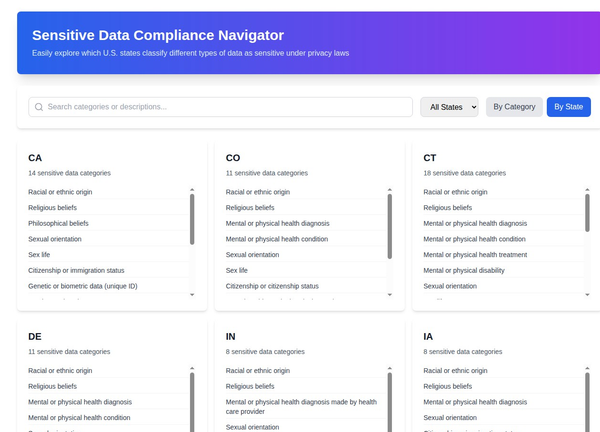Ukrainian Court Sentences FSB-Backed Hackers for Over 5,000 Cyberattacks on Critical Infrastructure

In a significant legal decision, a Ukrainian court has sentenced two Russian Federal Security Service (FSB)-backed hackers from the notorious Armageddon group in absentia for conducting more than 5,000 cyberattacks against Ukrainian institutions and critical infrastructure. The sentencing was announced by Ukraine’s State Security Service (SBU) on October 8, 2024. This case underscores the increasing cyberwarfare between Ukraine and Russia, which has escalated since the annexation of Crimea in 2014, with cyberattacks now forming a core component of the conflict.

These hackers, formerly employees of the SBU in Crimea before joining the FSB after Russia's annexation of the region, were responsible for an array of devastating cyberattacks that disrupted critical government functions and sought to weaken Ukraine’s national security infrastructure. Their activities highlight the scale and sophistication of Russia’s cyber operations against Ukraine, which have extended well beyond the battlefield and targeted crucial state institutions.

The Role of Armageddon in Russia’s Cyber Offensive
Armageddon, also known by cybersecurity experts as Gamaredon, is a Russian hacker group that has been active since 2013. According to Ukraine’s SBU, Armageddon specializes in cyberespionage and sabotage, frequently targeting Ukrainian state institutions, including ministries and critical infrastructure sectors. Backed by Russia's FSB, the group has been responsible for some of the most crippling cyberattacks aimed at undermining Ukraine’s sovereignty and governance.
The two hackers, whose identities were not disclosed, initially worked as SBU operatives in Crimea before they voluntarily defected to Russia’s FSB following the annexation of Crimea in 2014. This shift in allegiance enabled the Russian government to weaponize their insider knowledge of Ukrainian government systems and leverage it to conduct wide-reaching cyberattacks.
The SBU has accused the two hackers of launching attacks that breached the networks of several key Ukrainian ministries, including the Foreign Ministry and the Economic Development Ministry. These attacks allowed the group to gain access to sensitive data from document management systems and even classified government servers. Although specific details of the stolen data were not revealed, the breaches are considered to have compromised critical governmental operations and national security information.
Targeting Ukraine’s Critical Infrastructure and Institutions
The Armageddon group’s modus operandi revolves around exploiting vulnerabilities in Ukrainian government networks to conduct espionage and sabotage operations. The attacks were aimed at disrupting the internal operations of the Ukrainian government and public services by gaining unauthorized access to sensitive systems. The group’s focus on Ukraine’s critical infrastructure is particularly concerning, as these systems are essential for national defense, economic stability, and civilian safety.
The over 5,000 cyberattacks attributed to Armageddon affected a wide range of sectors, from government services to businesses and industrial facilities. By targeting the Foreign Ministry, the hackers aimed to compromise Ukraine’s diplomatic communications, which could have provided Russia with strategic advantages in international negotiations and geopolitical maneuvering. The infiltration of the Economic Development Ministry also implies that the group may have sought to undermine Ukraine’s economic policies and decision-making processes, further destabilizing the country.
Legal and Criminal Charges
The two hackers were charged under Ukraine’s Criminal Code for treason, unlawful access to computer systems, and cyber espionage. The SBU has made it clear that the sentencing represents a major milestone in Ukraine’s fight against Russian cyberattacks. The court sentenced the hackers to 15 years in prison, although the sentence will only begin when they are captured and brought into Ukrainian custody, which, given their location and backing by Russian authorities, remains a challenge.
The SBU emphasized that this verdict serves as a warning to other collaborators working with Russia to undermine Ukraine’s sovereignty. This case represents the latest in a series of efforts by Ukrainian authorities to hold Russian-backed hackers accountable for their roles in cyber espionage campaigns that have destabilized the country since 2014.
Escalation of Cyber Threats from Russia’s GRU
The sentencing of the Armageddon hackers comes amid broader concerns about the escalation of cyberattacks by Russian state-backed groups. Ukrainian and Western intelligence agencies warned in early September 2024 that Russia’s GRU Unit 29155, a notorious cyber espionage and military intelligence unit, continues to target critical infrastructure in both NATO and EU countries. These cyberattacks are often designed to cause widespread disruption to critical systems, including energy grids, financial institutions, and governmental operations.
On September 5, the U.S. indicted five Russian intelligence officers and a Russian civilian who were involved in cyberattacks targeting Ukraine and at least 26 NATO countries, including the United States. These charges highlight the transnational nature of Russian cyber warfare, with Moscow employing cyber espionage and sabotage not only to weaken Ukraine but also to challenge the stability of Western alliances.
The involvement of Russia’s GRU in these cyber operations has raised alarm across the West. GRU Unit 29155 has a well-established reputation for conducting covert cyberattacks, and its ongoing campaigns are considered part of a broader strategy to disrupt NATO cooperation, undermine EU stability, and tilt the balance of power in Russia’s favor. As cyberattacks become a critical element of modern warfare, the international community is increasingly concerned about the long-term consequences of state-backed cyber campaigns.
Broader Implications of the Armageddon Cyber Campaign
The sentencing of the Armageddon hackers is a crucial step toward accountability in the shadowy world of cyber warfare. However, it also reveals the challenges countries like Ukraine face in combating well-funded, state-backed hacker groups. Despite the court’s ruling, the two hackers remain at large, continuing to operate under the protection of Russian authorities. This reality underscores the difficulty in detaining individuals involved in cross-border cyber operations, especially when they are operating under the direct guidance of national intelligence agencies like the FSB.
Additionally, the legal action taken by Ukraine highlights the importance of national sovereignty in the digital age. As cyberattacks become a regular feature of geopolitical conflict, governments around the world are beginning to recognize the need for stronger legal frameworks and international cooperation to address the growing cyber threat landscape. Countries like the U.S., UK, and EU members are now prioritizing cybersecurity legislation to safeguard critical infrastructure, much like Ukraine has done in its ongoing fight against Russian cyber aggression.
The Future of Cyber Warfare and Geopolitical Conflicts
Russia’s use of cyber warfare as a tool of political influence and sabotage is part of a larger strategy that includes both conventional military tactics and covert digital operations. The Armageddon group, alongside other Russian-backed hacker collectives, demonstrates that cyberattacks can inflict significant damage without requiring physical conflict. These digital campaigns have increasingly targeted critical infrastructure, and the results can be devastating—leading to the compromise of sensitive data, financial losses, and disruptions to essential services.
Moving forward, Ukraine will likely continue to face Russian cyberattacks as the conflict between the two nations persists. While the sentencing of these hackers marks a symbolic victory for Ukraine, it also highlights the importance of international collaboration in deterring cyber threats. The involvement of NATO and EU intelligence agencies in addressing these attacks demonstrates a growing recognition that cyber threats extend far beyond national borders and require coordinated global responses.
Conclusion: A Turning Point in Ukraine’s Cybersecurity Strategy
The sentencing of the two Armageddon hackers represents a significant step forward in Ukraine’s battle against Russian cyber aggression. While the hackers remain at large, the court’s decision sends a clear message that Ukraine is determined to hold cybercriminals accountable, even when they are backed by powerful foreign governments.
As cyber warfare continues to evolve, Ukraine and its allies must remain vigilant in their efforts to defend critical infrastructure and institutions from increasingly sophisticated cyberattacks. The fight against state-sponsored cyber espionage is far from over, but with legal frameworks like these in place, Ukraine is better equipped to confront the growing threats posed by groups like Armageddon.







